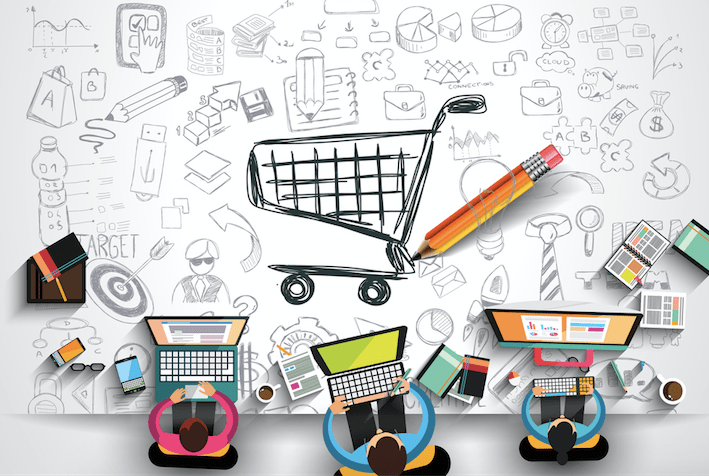ERP for retail helps retailers manage their businesses in an effective and efficient manner by providing consistent information flow. It helps in easy tracking of all business transactions. A retail ERP system allows automatic recording of transactions in a real-time environment.
What Is An ERP For The Retail Industry?
ERP (Enterprise Resource Planning) is a software system that helps companies focus on the core business and make strategic decisions. The software helps various business functions to work together in synergy. It’s a framework for planning, integrating and optimizing business processes. It takes care of the entire spectrum of business operations—from supply chain management to customer relationship management, from manufacturing to financial accounting. The broad-spectrum ERP solutions generally come with a set of common features. They help retailers manage their business processes, such as inventory management, procurement, supply chain management, marketing, human resources, etc. in an integrated manner.
Advantages of Retail ERP Systems
- Cost control: Retailers can avail suggestions from their ERP system to make informed decisions. In fact, the software provides critical support during the planning process.
- Speeding up of processes: The ERP system is a comprehensive tool for all aspects of retail management, thus allowing you to speed up various business processes.
- Customization: Retailers can customize the ERP to suit all their requirements.
- Real-time information: ERP for retail provides information in real-time surroundings, thus allowing you to plan your business with accuracy and precision.
- Customer service: ERP for retail helps retailers to understand their customers better by providing all necessary information on a single screen.
- Accurate recordkeeping: It helps in organizing your company’s records. The system maintains a record of all your critical business transactions, thus helping you to prepare effective reports.
- Order tracking: ERP for retail helps in tracking all purchase orders. In fact, you can view all your orders and procurements from a single application.
- Improved Sales: Retail ERP software helps in customizing the sales module and presenting it to customers.
- Every retail business must have ERP software. It’s an integral part of business system. If you are a retailer and are looking for retail ERP solutions, you can get in touch with us. We offer customized ERP software solutions that are tailor-made to meet your business requirements.
How to Pick A Retail ERP System
One the most critical decision to make is the selection of software to track your business’s activities. You may opt for a cloud ERP option, a on-site ERP software, or use off the shelf software applications. The most significant aspects to consider are outlined below.
- The size of your business
- The complexity of your retail business process
- The productivity of your retail business
- The requirement of your retail business
- Technical and implementation know-how
- Operational costs
So, how will you pick an ERP solution that is right for you? The best way to find the best software for your business, is to take your time and do some research. Narrow down the list of software options by including only those that offer the kind of functions you want. You may also want to consider ERP software support, user reviews or evaluations and available training.
Types of ERP Software Systems to Manage Retail Business
ERP software covers almost all aspects of retail business covering all aspects from top-to-bottom like planning, execution, communication, information sharing, development, management etc. Enterprise Resource Planning Software is made up of the following segments:
- Front Office Accounting and E-commerce- by integrating all the retail business processes in a central system it helps to create a wholesome picture of all the activities carried out by a retail business using an ERP system.
- Customer Relationship Management (CRM) – To manage and track customer relationships in a perfect manner, a Retail ERP Software like CRM manages all customer related activities.
- Business Intelligence – An ERP for Retail Industry offers business intelligence for retail business through which retail business owners can make common sense out of large volumes of data stored.











